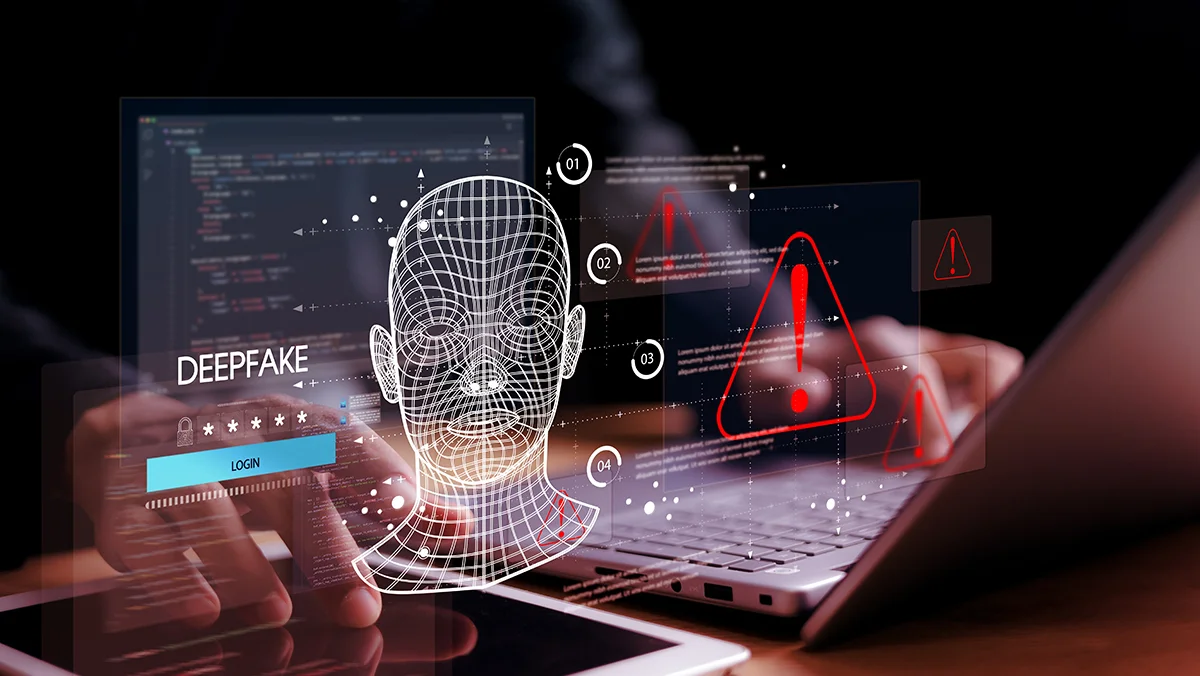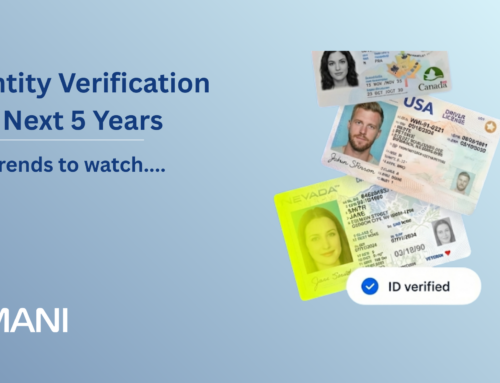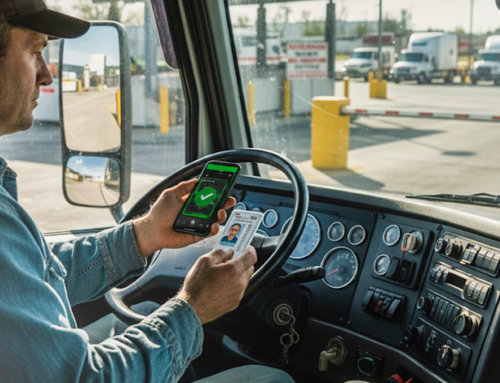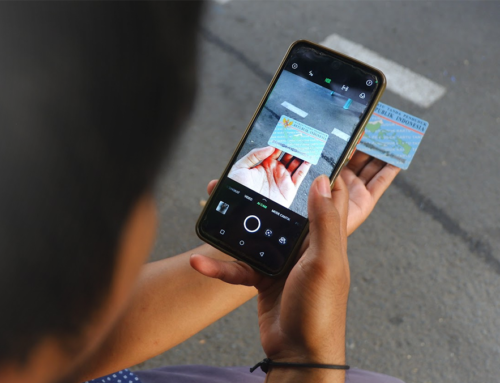In 2025, identity fraud driven by deepfakes is no longer a niche concern. Gartner projects that by 2026, over 30% of identity verification attacks will involve AI-generated media. Such a trend is creating a storm for founders trying to navigate high-growth environments where fraudsters are scaling faster than security teams and outdated IDV methods are struggling to cope.
From Dubai to London, platforms are battling fraud while trying to scale, hit KPIs and keep investors confident. Needless to say, the pressure to deliver low-friction onboarding is high, yet traditional selfie checks fail to stop sophisticated video spoofs or AI-generated faces. This is where automated identity verification and real-time face liveness detection become essential, as such technology lets founders fight deepfake fraud without sacrificing speed, compliance or trust.

What’s New?
Regulators Are Taking Deepfake Identity Fraud Seriously
As deepfakes become more realistic and accessible, global regulators are reacting quickly. It is crucial for fintech, crypto platforms, payment service providers and regulated industries to keep pace or risk serious penalties.
Why It Matters to Founders
This shift increases the pressure on tech founders to adapt quickly. Falling behind means risking regulatory penalties, reputational damage and lost customer trust. Manual checks no longer scale or protect against deepfake attacks. Founders must invest in robust, real-time solutions that detect fraud before it enters the system. Choosing the best AI-driven identity verification software for deepfake detection is now a key business decision.
Why Founders Should Care
This global shift toward deepfake-resistant compliance frameworks matters for three core reasons:
- Compliance risk is rising. Fines can exceed 4% of annual global turnover under GDPR.
- Onboarding drop-off is expensive. Long or high-friction IDV flows directly impact user acquisition costs and revenue targets.
- Investors are watching. One breach or viral spoof can derail valuation, especially in early-stage fundraising.
Founders must now build trust and compliance into their growth stack, not bolt it on after a crisis.
Impact and Risks Involved
Without liveness detection, it is challenging for founders to address fraudulent activities, making them open themselves to potential threats. Here is how deepfakes can affect core business outcomes and undermine their reputation:
- Regulatory Penalties
Platforms relying solely on passive selfie checks may fail new compliance thresholds, especially in the EU or UK. - High Onboarding Drop-Off
Manual reviews and extended verification waits create friction. Every additional 10 seconds can lead to a 7% higher user drop-off rate. - Rising IDV Costs
Without automation like liveness detection, firms rely more on human review, inflating onboarding costs and hurting scalability. - Fraudulent Account Creation
AI-generated selfies can easily bypass basic verification tools. One fake account can lead to losses in onboarding incentives, money laundering risk, or service abuse. - Reputational Fallout
A breach involving deepfake fraud, especially one that goes public, damages user trust and can trigger press scrutiny, partner concerns and legal investigations. - Delayed Product Releases
Rebuilding IDV infrastructure under regulatory pressure takes time and resources away from product innovation.
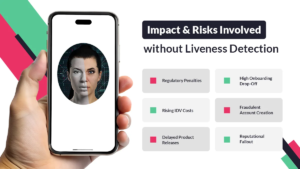
Regional Trends and Regulatory Momentum
Regulatory frameworks are rapidly evolving in response to AI-generated identity fraud. In the European Union, the AI Act and updated eIDAS regulations are tightening requirements for remote identity verification. These laws emphasise biometric security, audit trails and anti-spoofing measures. Companies failing to comply could face steep penalties or even lose their license to operate.
In the United Kingdom, the Financial Conduct Authority (FCA) now recommends proactive fraud monitoring as part of customer onboarding, with biometric and liveness checks considered best practice for digital KYC.
Meanwhile, UAE regulators are prioritising biometric identity standards across the fintech and crypto sectors. The Dubai Financial Services Authority (DFSA) is expected to release updated guidelines mandating AI–powered identity verification and advanced liveness detection for regulated entities by late 2025.
In North America, the United States Federal Trade Commission (FTC) and Canada’s Office of the Privacy Commissioner are actively reviewing AI-generated fraud trends and several states are proposing legislation to hold platforms accountable for deepfake-related breaches.
For global platforms, staying ahead of these regional developments is essential not just for compliance but also for investor confidence and customer trust.
Detect Deepfakes in Real Time with Face Liveness Detection – Amani’s Identity Verification Software for Founders
To address fraud prevention and conversion goals, face liveness detection verifies if the user in front of the camera is a live human, not a screen replay, synthetic video, or deepfake image. It happens instantly and can be integrated seamlessly into existing onboarding workflows.
Types of Face Liveness Checks
- Passive Liveness
Detects life signs from a single selfie or short video, using motion blur, reflection analysis, texture patterns and more. No user action needed. - Active Liveness
Prompts the user to perform small movements (e.g., blinking, head turns) and checks for natural behaviour.
At Amani, our liveness detection engine powered by our proprietary technology blends both methods, using passive checks first and escalating to active only when risk is flagged. The result is minimal friction, maximum fraud detection.
Case Example: How a Turkish Bank Transformed Onboarding with A Fully Customised Identity Verification Stack
In 2024, a leading bank in Turkey set out to upgrade its customer verification infrastructure. The bank needed a secure, on-premise solution compatible with their current operating system. They were seeking a solution that could be tailored to their brand and utilised across multiple onboarding scenarios, including password resets and account updates via phone or email.
As security was a top priority, the bank requested both passive and active face liveness detection to prevent spoofing and identity fraud. They also sought a fully customised SDK and integration with a video KYC solution to ensure a seamless yet comprehensive user experience.
Amani’s Approach: A Phased, Tailored Integration
Amani partnered closely with the bank, starting with the password reset use case. From there, the solution was expanded to cover other onboarding journeys to make sure that each flow met the bank’s specific technical and regulatory needs.
Key steps included:
- Delivering a 100% customised SDK for complete brand alignment and control
- Integrating both passive and active liveness detection to fortify identity checks
- Enabling full video onboarding for smoother user interactions and compliance
The results were immediate and meaningful:
- The customised SDK gave the bank complete control over the UX, reinforcing trust and improving brand perception
- Dual-layer liveness detection significantly reduced fraud risk across onboarding processes
- The addition of video KYC made onboarding faster and simpler for users, boosting satisfaction
By implementing a tailored, all-in-one solution, the bank now delivers a secure, high-conversion onboarding experience that meets compliance requirements while elevating customer confidence and operational efficiency.
Our Advanced 100% Proprietary Biometrics Engine Specifications– Amani Vida
3D Face Modeling
Amani Vida uses proprietary biometric technology to extract 468 key facial landmarks to allow the creation of an accurate 3D face model. This model is cross-verified with ID and NFC-based photographs to ensure high-precision identity matching.
Facial Segmentation
Our advanced facial segmentation model enables high-performance applications such as de-blurring, facial landmark extraction, face swapping, and facial recognition. This robust segmentation improves accuracy across various biometric use cases.
Age & Gender Prediction
Leveraging deep learning, Amani Vida can reliably estimate a person’s age and gender. These attributes help strengthen identity verification by ensuring consistency between the individual and their official documents.
Behavioral Analysis
Cutting-edge behavioral detection algorithms assess biometric sessions in real time, identifying signs of stress, duress, or coercion. This enhances the integrity of the verification process by adding a layer of behavioral security.

FAQ: Face Liveness Detection and Deepfakes
Q1: What is face liveness detection?
Face liveness detection is a technology that verifies whether the person in front of the camera is a real, live human being, not a deepfake video or a static photo.
Q2: Why are deepfakes a threat to identity verification?
Deepfakes use artificial intelligence to generate highly realistic fake faces or videos. Fraudsters can use them to bypass basic selfie verification and commit fraud.
Q3: Is passive or active liveness better?
Passive liveness is seamless, while active liveness requires small user interactions. A combined approach, like Amani’s, offers security with minimal user friction.
Q4: Can liveness detection integrate with existing systems?
Yes. Solutions like Amani’s offer easy-to-integrate APIs that work with your existing onboarding stack.
Action Checklist
If you’re a founder or compliance lead, here’s what you can do this week:
- Implement real-time face liveness detection to prevent deepfake attacks
- Replace manual identity checks with automated, scalable APIs
- Train internal teams on new fraud vectors and compliance tools
- Track key metrics like onboarding speed, fraud attempts blocked and KYC approval rates
Conclusion
Deepfakes are mainstream tools used by fraudsters. Ignoring them could mean compliance failures, reputational damage and stalled user growth. But with real-time face liveness detection, founders can fight back by detecting fraud at scale, improving user trust and staying ahead of regulators.
Book a free demo to see how Amani’s biometric identity verification solution can strengthen your onboarding and help you grow securely.
